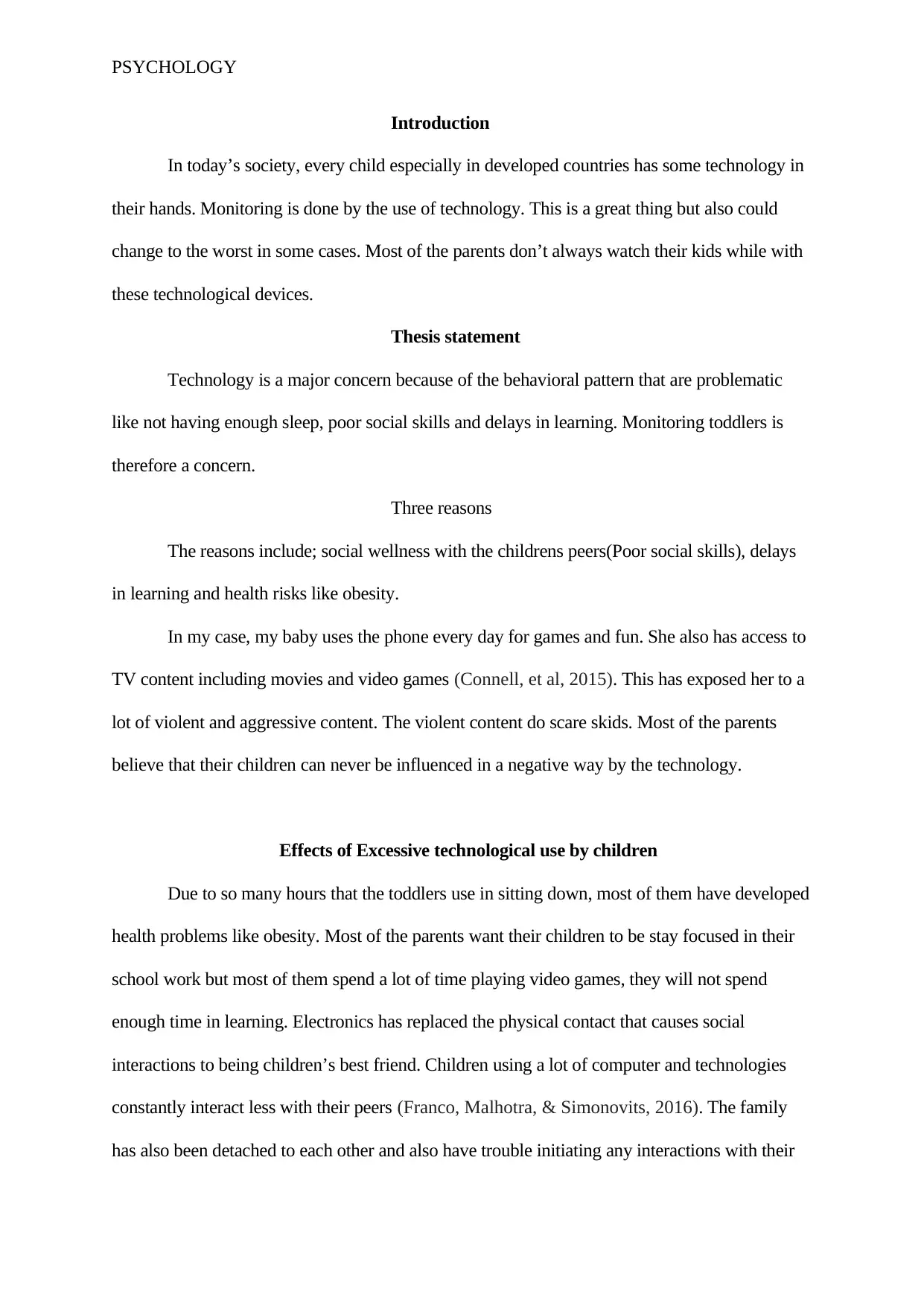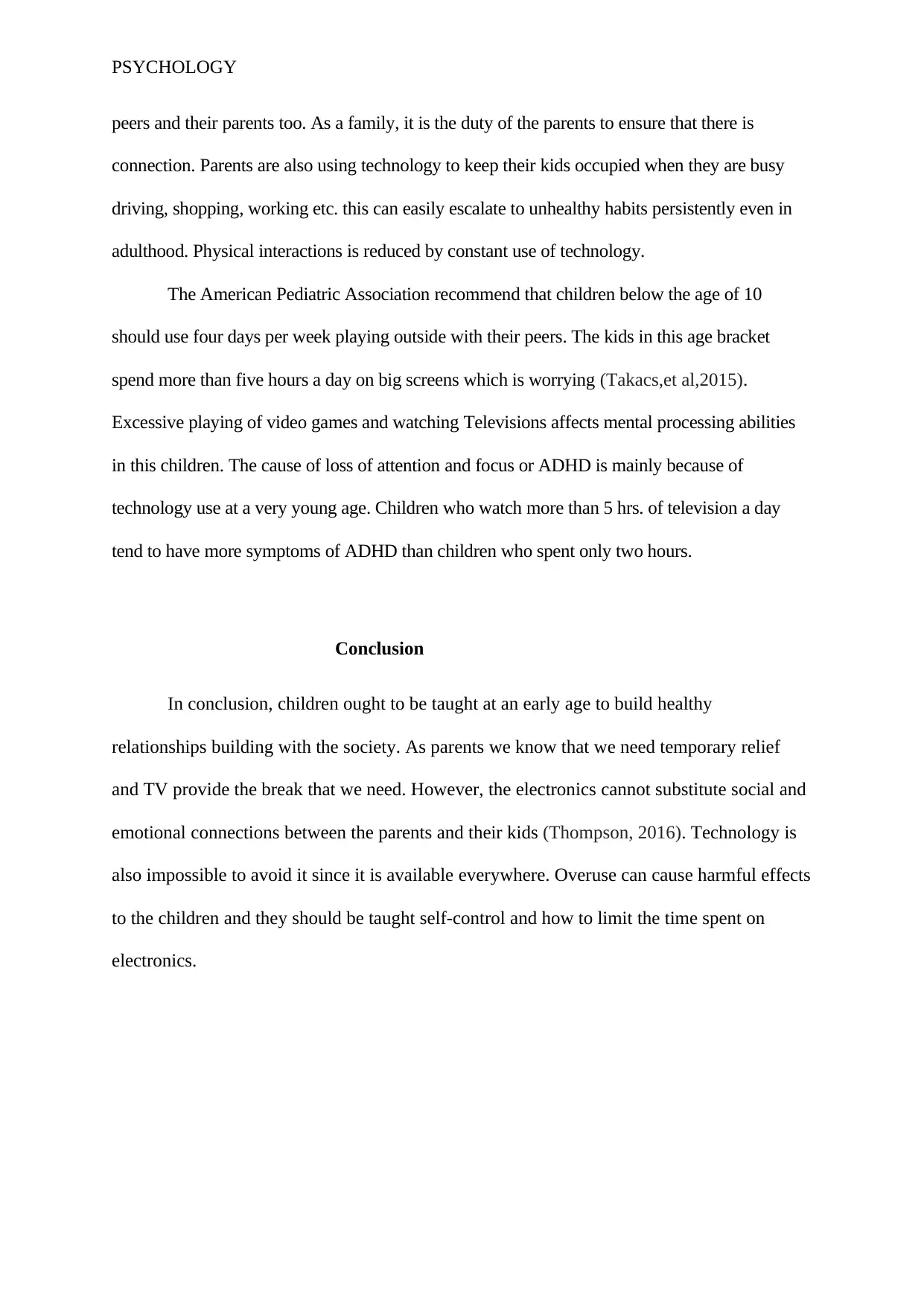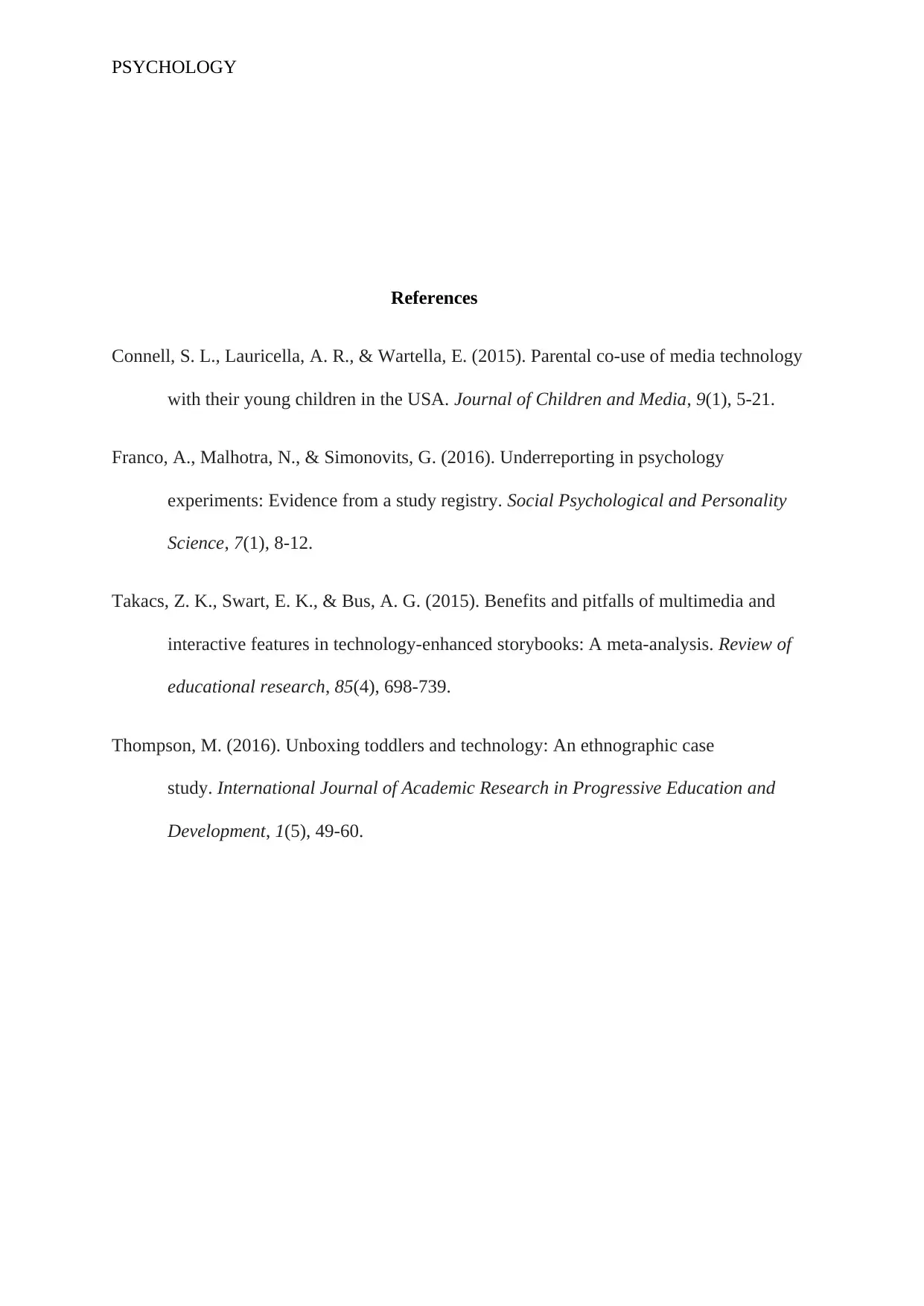ENG 115 Personal Essay: Exploring Technology's Impact on Toddlers
VerifiedAdded on 2023/01/19
|4
|792
|98
Essay
AI Summary
This personal essay delves into the effects of technology on toddlers, focusing on the author's personal experiences and observations. The essay's central argument is that excessive technology use poses significant concerns due to problematic behavioral patterns, including insufficient sleep, impaired social skills, and delays in learning. The author uses their own child's experiences with phones, video games, and TV to illustrate these points. The essay identifies three key reasons for concern: poor social skills, delays in learning, and health risks such as obesity. It discusses how technology replaces physical interactions, detaches families, and potentially leads to attention deficit disorders. The author references research to support the negative impacts of screen time, recommending that children should spend more time interacting with peers outside. The conclusion emphasizes the need for parents to teach self-control and limit children's time on electronics, while also acknowledging technology's inevitability in modern life and the need for balance.
1 out of 4











![[object Object]](/_next/static/media/star-bottom.7253800d.svg)